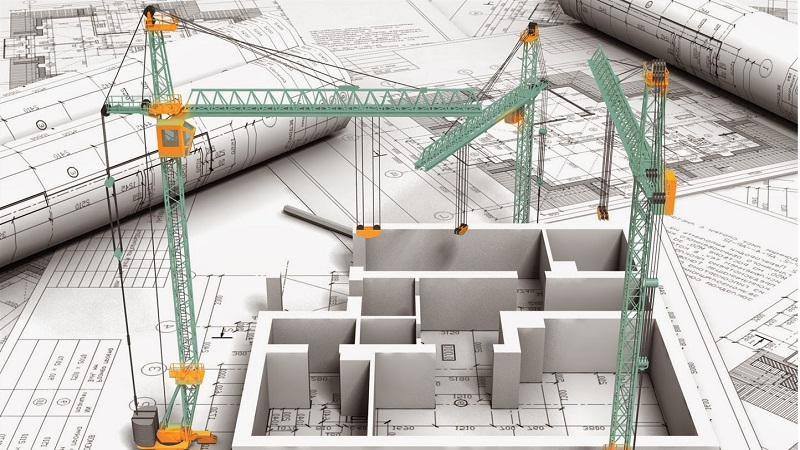+91 92050-84085
Mon-Sat 9am-7pm













Architects are the real creators of amazing buildings and structures. Skyscrapers in metro cities would not have been possible without them. While capitalism furthers the growth and prosperity of human race, tall buildings with beautiful designs and glory show the grandeur. The rebuilding of ‘Twin Towers’ collapsed in 9/11 incident and other towers and structures shows the real dint of human talent and excellence, creativity and vision.
Considered as one the chic professions and looked as a profession for elite class students, architecture has changed tremendously in the last couple of decades where demographic set up of students has gone through tremendous changes; and, students from varied social background, disciplines, and streams have come to join Architecture colleges. Career in Architecture is attractive, high paying, and has lots of potential in terms of growth. Besides the required criteria, some essential skills are also required for a career in architecture.
• Architect: Literally an architect is someone who has got training from an architecture institute on the planning, design and oversight of the construction of buildings. Generally, architects are licensed to practice architecture. An architect either can work independently or for some architecture company or real estate developing firm.
• Architecture Designer: Architecture designers are the professionals who are involved in designing houses and other small buildings. However, these are not registered like an architect but perform various jobs such as designing buildings, designing light-frame buildings including of family homes, agricultural buildings, etc. Some additional duties for architecture designers may include designing of decorative facades malls or big to small sized buildings.
• Architecture Engineer: These professionals have dual qualification of architect and a civil engineer. Bestowed with the duty to provide the services of an architect and engineer, such professionals have attractive demand in job market.
• Interior Designer: Contrary to general belief that the career in interior designing belongs to women, men found it attractive and do courses in interior designing, interior decor, etc. Trained professionals can work with interior designing firms offering services in serene interiors, home interior, bedroom interior, bathroom interior, kitchen, furniture designing, etc.
High school graduates who want to become an architect can pursue a Bachelor of Architecture (B.Arch.) program, which typically takes five years to complete. Pre-professional bachelor's degree programs in architectural studies or construction management take four years to complete. Undergraduate courses will include topics in architectural history and theory, building and construction, and computer-aided design and drafting (CADD). Students also participate in design studios where they draw and create 3-D models.
Aspiring architects who have already earned a bachelor's degree in another field, like architectural history or construction management, can apply to a Master of Architecture (M.Arch.) program. These advanced programs are also open to applicants who have professional B.Arch. degrees and want to specialize in historic preservation, design theory, solar design, or another related field.
Depending upon prior education and experience, an M.Arch. degree can be earned in one to five years. For example, students with a pre-professional undergraduate degree in architecture can earn their M.Arch. degrees in two years, or three years if they have a bachelor's degree in another field. Students who have already completed a B.Arch. program can usually complete an M.Arch. program in one year.
Students seeking admission to professional M.Arch. programs may have an advantage if they have design experience and an undergraduate education in humanities or art. Some schools require a portfolio featuring the applicant's best sketches and models. Once enrolled, M.Arch. students may have to complete certain prerequisites, such as classes in architectural theory, before proceeding with professional coursework.
Architects can work with construction companies wherein they are asked to serve as a designer. Initially, an architect is expected to understand specific requirements of clients and strike a right balance between aesthetics and practicality. Additionally, an architect with skills can help clients by his ideas in terms of balancing the requirements of appearance, financial budget and time frame. Some architects even work independently and earn their livelihood through consultancy fees which entirely depends upon the skills and profile as well as work experience.
Most of the jobs in architecture come up in government organizations such as Public Works Department, the Archaeological Department, Ministry of Defense, National Building Organization, Town and Country Planning Organization, National Institute of Urban Affairs, Departments of Railways, Post and Telegraphs, Public Sector Undertakings, Housing and Urban Development Corporation, National Building Construction Corporation Ltd., etc. While some other organizations or bodies like State Departments, Housing Boards, Local Bodies for construction works, Builders, Architecture Firms, Consultants, etc. also hire architects.
Architects working independently have ample scope in terms of earning. However, the inherent hazard with independent practice is that the professional undergoes lots of work as he alone has to plan details of sizes, specification and estimates of the cost of the structure, etc. Moreover, he require good models and graphics as there would not be any other person to assist him which is the case when he works with some construction company. Specialization works well for better prospects in architecture as it is a matter of requirement.
The median annual wage for architects is $79,380. The median wage is the wage at which half the workers in an occupation earned more than that amount and half earned less. The lowest 10 percent earned less than $48,020, and the highest 10 percent earned more than $138,120.
The median annual wages for architects in the top industries in which they work are as follows:
| Government | $92,940 |
| Architectural, engineering, and related services | $78,460 |
| Construction | $78,110 |
Most architects work full time and many work additional hours, especially when facing deadlines. Self-employed architects may have more flexible work hours.
Call us at +91 9205084085, Monday - Friday, 9 am - 7 pm


